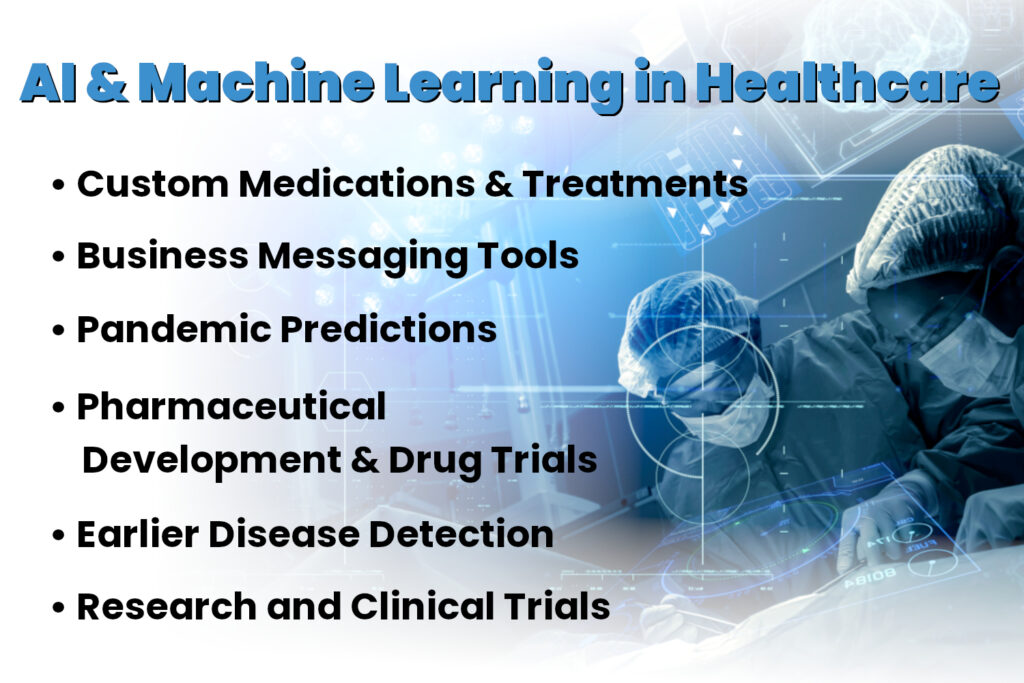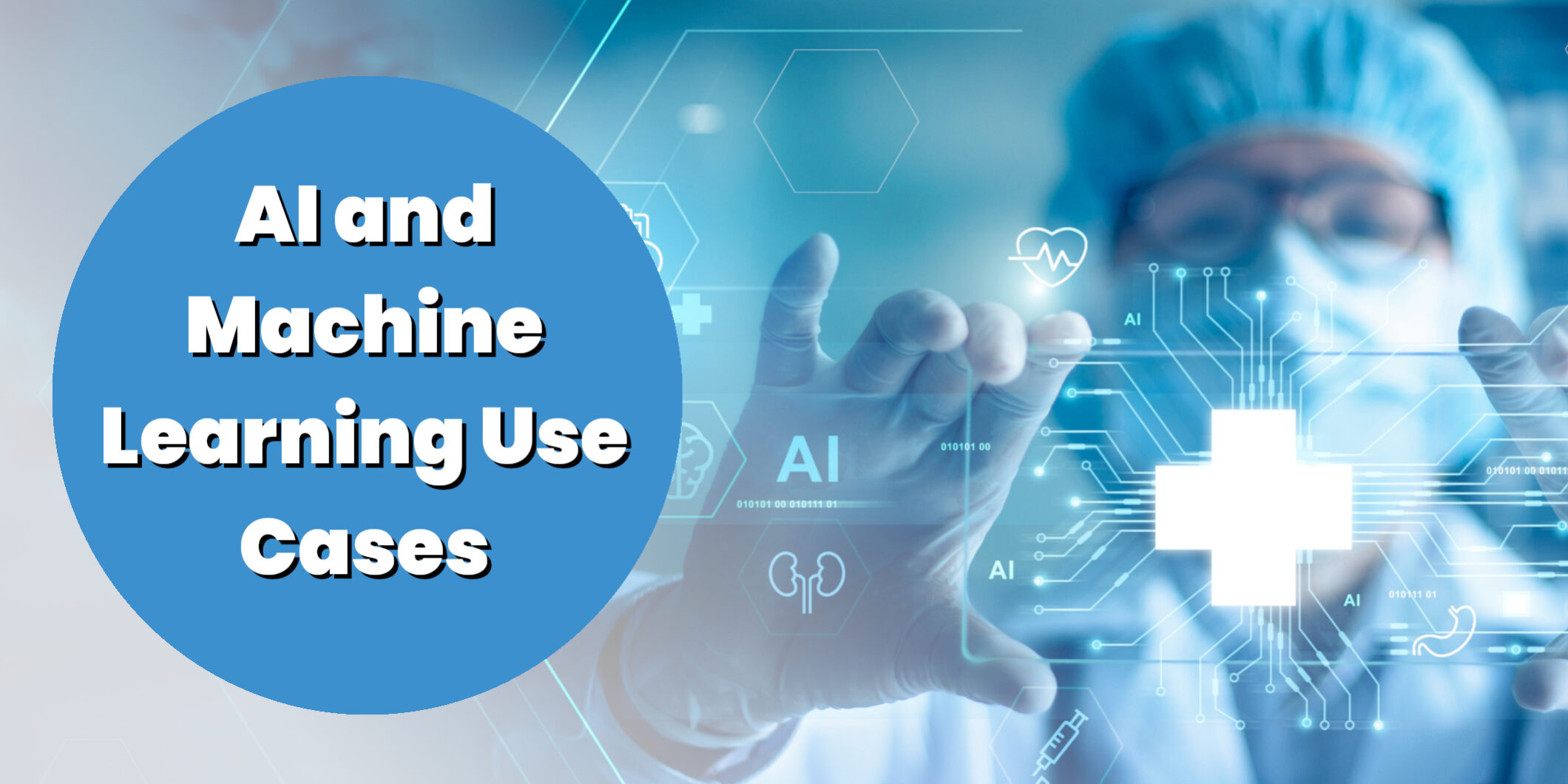The COVID-19 pandemic propelled the development of many technologies, including the cloud, machine learning (ML) and artificial intelligence (AI). The latter two are frequently paired, with machine learning algorithms executing various applications of artificial intelligence technology.
Statista found that the healthcare AI market totaled approximately $11 billion in 2021 — a metric that’s expected to increase to a whopping $188 billion by 2030. This prompts business leaders in the healthcare space to wonder precisely how machine learning and AI is being utilized.
AI and ML Use Cases in Healthcare
The healthcare industry has long been known for its advances both medically and technologically, due in part to the inherent need for continual advancement and improvement in medical care and treatments. This, in turn, drives technological advances.
Machine learning has gone a long way toward improving medical care in the span of just a couple years by expediting advances in surgery, pharmaceuticals, and patient care. Increasing numbers of physicians use this technology to diagnose and treat patients faster and with greater accuracy.
These examples are just the tip of the high-tech iceberg. Consider the following AI and ML use cases in healthcare and medicine.
Customized Treatments and Medications – Machine learning enables healthcare professionals to develop personalized medications and custom treatments for a variety of diseases and conditions, including cancer. This has led to dramatic improvements in patient outcomes.
Public Health and Pandemic Predictions – The COVID-19 pandemic shone a spotlight on the topic of public health predictions. Machine learning technology is ideal for processing the large volumes of data required to make accurate predictions. Accurately predicting the spread of an illness — and whether it may reach the level of a regional or global pandemic — gives public health officials the ability to take action sooner. They’re also empowered to act in a manner that’s more likely to lead to a positive outcome when they have the ability to make data-driven decisions.
Pharmaceutical Development With AI and ML – The pharmaceutical industry can benefit greatly from machine learning and artificial intelligence, especially for uses like developing new treatments. Data drives the creation and testing process for new drugs and treatment regimens. Leveraging AI and ML to process large volumes of data offers clear benefits. Rapidly crunching this data enables researchers to accelerate the process of identifying patterns and trends that guide drug development and trial stages.
Reducing Pharmaceutical Dispensing Errors – There is the matter of human error which can arise as a pharmacist dispenses prescription drugs. It’s estimated that as many as 9,000 Americans die annually in cases involving human error and prescription drugs. Something as simple as a typo on a prescription bottle label or dispensing the wrong milligram dosage can be disastrous. Leveraging AI and MLcan help identify problematic practices and processes. Once an issue is identified, a solution can be deployed using AI and process automation to minimize human error and increase accuracy.
Clinical Trials and Research – Advances in the medical field are driven by clinical trials and research. Machine learning uses for AI technology can go a long way toward empowering researchers to make sense of large volumes of data by identifying trends and patterns. AI can be used to refine the medication or treatment that’s at the center of a clinical trial or research study.
Early Disease Detection – The efficacy of ML and AI for pinpointing trends and patterns is ideally suited to those seeking an early diagnosis. Early symptoms may otherwise be ignored or misattributed. Machine learning technology can identify early warning signs, and improve outcomes for patients living with specific diseases or conditions.

Finding the Ideal Healthcare AI Development Partner
The right technology — packaged within an engaging, user-friendly software platform — has the power to be a true game changer, with tools that drive ROI for organizations in the healthcare industry. The team at 7T has experience working with multimodal machine learning-powered AI applications across industries, including the medical and healthcare industry. By working with a top Dallas Digital Transformation development company that’s experienced in the newest emerging technologies like machine learning-powered AI, you’ll maximize your chances of success with quantifiable KPI metrics and ROI.
The Digital Transformation development team here at 7T is guided by the approach of “Digital Transformation Driven by Business Strategy.” As such, the 7T development team works with company leaders who are seeking to solve problems and drive ROI through Digital Transformation and innovative business solutions such as multimodal machine learning-powered AI implementations in the healthcare space.
7T has offices in Dallas, Houston and Austin, but our clientele spans the globe. If you’re ready to learn more about machine learning and AI development solutions for the healthcare field, contact 7T today.










